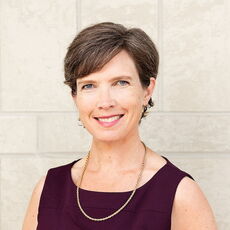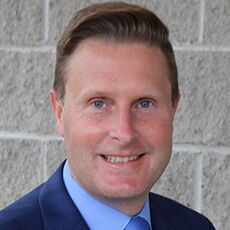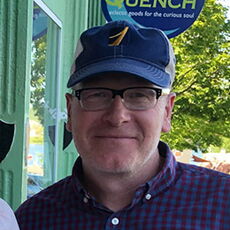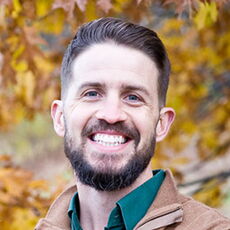
Prolonged effects of pandemic: Nonprofit leaders talk about challenges, in their own words
Maine nonprofits are still experiencing a variety of damaging ripple effects from a pandemic that started in March 2020. Unprecedented fundraising and staffing challenges continue to coincide with increased demand for the vital services they provide.
This slow-motion crisis with no clear endpoint has led some in the community to question the fundamentals of how they operate. They wonder if perhaps a reboot or reimagining is in order. Many have made significant changes already.
Mainebiz asked leaders of more than a half-dozen Maine nonprofits to describe the biggest challenges they face in 2023. Some problems are new and others perennial, but all have been touched by the pandemic. It has either created or exacerbated them.
Those challenges include fewer donations, lower attendance at events and gatherings, groups with similar missions competing for too few workers, growing client waitlists, and a tendency to get pulled in too many different directions, among others. They have led some to call for a new era of cooperation, coordination and collaboration within the state’s nonprofit sector, which employs one out of every six Maine workers. The following assessment is from nonprofit leaders, in their own words.
Nonprofits face ‘unprecedented challenges’
Jennifer Hutchins: Executive director, Maine Association of Nonprofits

Nonprofits across Maine and the U.S. continue to be burdened by unprecedented challenges as they must balance workforce fluctuations and decreased public and private funding with increasing demand for their programs and services. Since the early days of the pandemic and continuing to today, our nonprofits are often the first to step in and provide immediate support for our communities.
As the state’s largest network of charitable nonprofits, MANP has identified these key areas that need focus in the years ahead: changing the way we work with government and business; advancing diversity, equity and inclusion in order to live up to our commitment to the common good; building a healthy nonprofit workforce; and reimagining strategies to achieve greater impact.
We must work together in the face of big economic, social, political and environmental shifts. It can’t remain business as usual. We need new voices, new structures and new solutions to ensure the resilience and well-being of all Maine communities.
Nonprofits need to address ‘redundancy’
Jason Parent: Executive director and CEO of Aroostook County Action Program

A significant challenge Maine nonprofits are not doing enough to acknowledge, let alone address, is the unsustainable redundancy and inefficiency that exists in the necessary administrative and support systems required to operate numerous organizations that serve similar populations and aligned areas of service within the same regions and across our state.
This has been an ongoing issue, but one that is more important than ever to mitigate given the exacerbating conditions that come with shortages of qualified personnel and competition for tightening resources in this post-pandemic era.
It is not unlike the current challenges we see with the redundant systems found in municipal and school government and other sectors in Maine. Collectively, we must set aside the competitive rivalries and turf warfare mentality and do more to engage in the difficult conversations of how nonprofits, and other enterprises, do a better job of sharing resources and exploring alternative arrangements including consolidations and mergers that put the best interests of the communities and people we serve at the center of our work and ensure that direct services do not diminish at a time when they are most needed.
Looking for ‘financial stability’
Nick Turner: Executive director of the Grand in Ellsworth

The Grand in Ellsworth was built in 1938 as an economic driver for the new Main Street. In 1975, Hancock County Auditorium Associates was formed to save the deteriorating building from demolition. It’s now on the National Historic Registry. The Grand serves as an arts, education and entertainment anchor for Ellsworth and greater Hancock County.
Financial stability is the singular biggest challenge facing the Grand and has been for many years. Nonprofits are experiencing an unprecedented decline in philanthropy. The Grand has chosen to focus on better and brighter programming and improving concessions, including adding beer and wine. This pivot initiated a 49% increase in ticket and concession sales from fiscal year 2018 to 2019 and experienced an impressive improvement in financial stability.
All indications were that this trend would continue in 2020. The Grand saw momentum disappear in April 2020. The Grand shuttered for 18 months and experienced an almost 100% loss of revenue during the COVID shutdown.
The Grand reopened in the fall of 2021 and offered community-driven and welcoming family events that saw larger attendance than what many venues reported locally and nationally. Still, revenues were only 56% of 2019 numbers, and donations were flat. In 2022, programming, community engagement, and optimism fueled another jump to 84% of 2019 sales. Although we are hopeful sales will return to pre-COVID numbers, charitable giving continues to decline due, in most part, to a stagnant economy.
The Grand has lost an estimated $934,000 in potential revenue over COVID and the recovery. A notable concern is the existence of Federal American Rescue Plan monies earmarked for economic recovery that remain unused in county and municipal coffers.
Can’t be ‘all things to all people’
Ray Ruby: Executive director of the Maine Cancer Foundation

A significant challenge for many nonprofits in Maine is that we want to be all things to all people. It’s why most get into this line of work in the first place; we strive to do everything in our power to help others. But it’s impossible to do it all, and even more challenging to tackle it alone.
The staff at Maine Cancer Foundation are incredibly proud of our work in cancer prevention, early detection, and ensuring all Mainers have the best access to care. Though we may lead these statewide efforts, no real impact would happen without our incredible partners covering all 16 counties. In a state as large as Maine, strong partnerships are pivotal when facing issues as significant as cancer.
Still, there are those moments when we can’t solve every problem for everyone, and a bit of disappointment sets in. But, the hope, and most often the reality here in Maine, is that another organization will pick up where you left off. Sometimes we are only tasked to carry the baton part of the way, and when you’ve built the right relationships, it’s just a hand-off to a trusted teammate to do their part.
A need for ‘stronger pipeline of qualified candidates’
Kristen Farnham: Vice president of legal affairs and advancement at Spurwink

For Spurwink, our two greatest challenges are intertwined: the critical need for behavioral health services and the challenge in recruiting staff. In many of our programs — from substance use treatment to outpatient counseling, and from our therapeutic preschool to our nursing home for people with disabilities — we have waitlists. More people need our services than we are able to take at this time.
We also know that anxiety and depression is spiking among youth, and that there are not enough treatment programs for people with opiate and other substance use disorders. However, we can’t expand our services to meet those community needs without the staff to provide treatment.
With certain positions, we have gained some ground in hiring in recent months, while for others such as clinicians and nurses, we could use a stronger pipeline of qualified candidates in Maine to fill our open positions.
A ‘massive gap’ for services, programs and money
Patrisha McLean: Founder and president of Finding Our Voices

The most significant challenge for Finding Our Voices as a grassroots nonprofit is trying to fill the massive gap in Maine for services, programs and money for victims of the domestic violence epidemic that is raging in plain sight all around us.
Our bold survivor-powered outreach campaigns including posters featuring my photo portraits of 45 Maine survivors, including Gov. Janet Mills, is uncovering more and more women and children whose lives are blighted and in danger through a justice system tilted to the perpetrator and assistance including free legal services that is a drop in the bucket to the desperate need.
Finding Our Voices is racing to fill the yawning gap, including with online support groups, pro bono dental care, and a Get Out Stay Out fund that has disbursed $60,000 this past year for emergency shelter, car, legal and food needs.
But everyone has got to wake up to the emergency of domestic violence in Maine, galvanizing action as with the opioid epidemic and just as for the veterans of foreign wars, prioritizing assistance for the child and women veterans of wars going on in bedrooms and kitchens all around us, including free treatment for PTSD!














0 Comments